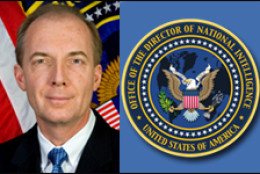Office of the Director of National Intelligence
-
The law enforcement response to what turned out to have been a false alarm at the Washington Navy Yard last week was quite different than the actual active shooter situation in 2013.
July 06, 2015 -
With the e-QIP system shutdown for four-to-six weeks, OPM and ODNI told agencies to get hard copies of the forms from new hires, or employees or contractors needing reinvestigations.
July 03, 2015 -
The Director of National Intelligence is the first administration official to publicly attribute the OPM breach to China, and says intelligence agencies would have engaged in similar operations if given the opportunity.
June 26, 2015 -
Michael Vickers, the undersecretary of Defense for intelligence, said cybersecurity and terrorism are his top two short- and long-term concerns. He said protecting space-based systems is becoming more important than ever. Vickers also wants to continue to transform the military intelligence community to meet ever-changing threats.
January 22, 2015 -
Now that all of the people have been gathered at the National Counterintelligence and Security Center, the work begins on building the same mindset. The new center houses ODNI employees, detailees from 15 agencies and contractors. What are they doing? For answers, we turn to Bill Evanina, the National Counterintellgence Executive (NCIX) and director of the National Counterintelligence and Security Center. On the Federal Drive, he told Tom Temin how the Center is working to prevent bad actors from getting security clearances, and making sure cleared people don't stay cleared if they no longer qualify.
December 16, 2014 -
After two years of planning and pilot programs, the intelligence community says its plan to integrate the IT systems of its 17 agencies is moving forward toward large-scale adoption.
September 19, 2014 -
Lawmaker asks National Security Director James Clapper to take action against the tax- delinquents and inform them that their potentially harmful financial behaviors put the nation's security at risk.
August 27, 2014 -
About 83,000 Defense Department employees and contractors, who held or were determined eligible for a security clearance, owed more than $730 million in unpaid taxes as of June 2012, according to a new report from the Government Accountability Office. Per GAO's recommendations, the Office of Personnel Management, Office of the Director of National Intelligence and DoD are now working to include tax-compliance checks to enhance security clearance processes.
July 28, 2014 -
In this edition of Inside the Reporter's Notebook, Executive Editor Jason Miller shares news and buzz about the IT and acquisition communities. Senate lawmakers prepare to mark-up IT reform bill next week. CIO's spend time at camp where OMB and others emphasize the word of the year: effectiveness.
June 20, 2014 -
In Part 4 of the special report, Questioning Clearances, Federal News Radio examines the government's plan to use new technology to keep better tabs on cleared personnel on a near, real-time basis. But some experts wonder whether such a plan could be implemented successfully in the swift timelines sought by the government.
May 18, 2014 -
The intelligence community and the Defense Department are both trying to build IT networks that attempt to get rid of IT stovepipes. In the process, they've found a few ways to work together.
May 14, 2014 -
After two years of planning, the intelligence community is ready to start deploying the set of common IT services that make up the Intelligence Community Information Technology Enterprise (ICITE).
April 16, 2014 -
OMB is set to begin next week a 120-day review of three broad areas around security clearances. DoD and ODNI are pursuing initiatives to create a continuous evaluation process for employees with secret and top secret approvals. Senate Homeland Security and Governmental Affairs Committee members say recent events show the process is broken.
November 01, 2013 -
The White House is finalizing its first major cybersecurity policy in more than three years.
October 04, 2013 -
Al Tarasiuk, the chief information officer of the Office of the Director of National Intelligence, took over the systems integration role for the intelligence community IT Enterprise (ICITE) program after progress slowed. September 26, 2013
September 26, 2013





